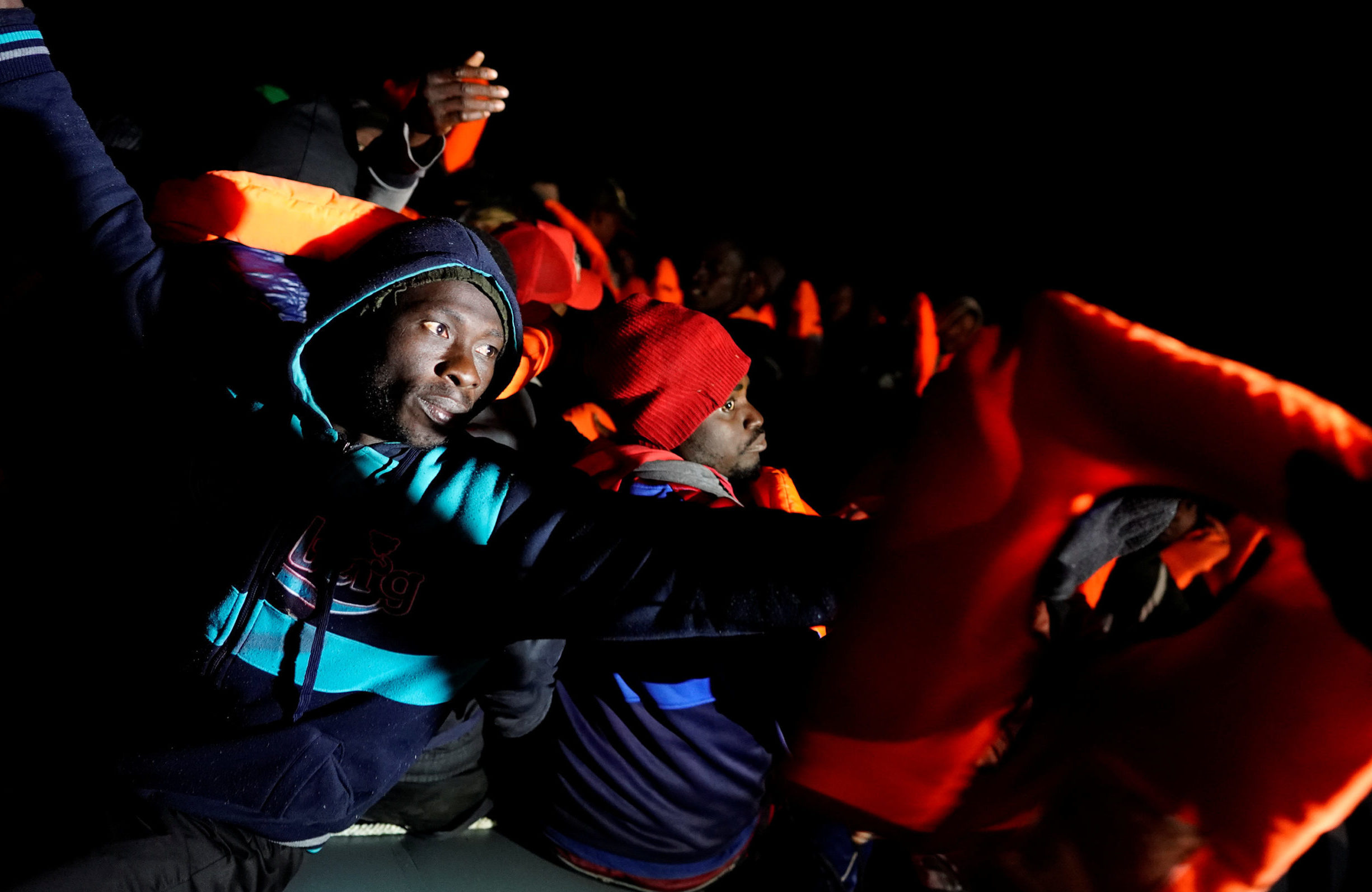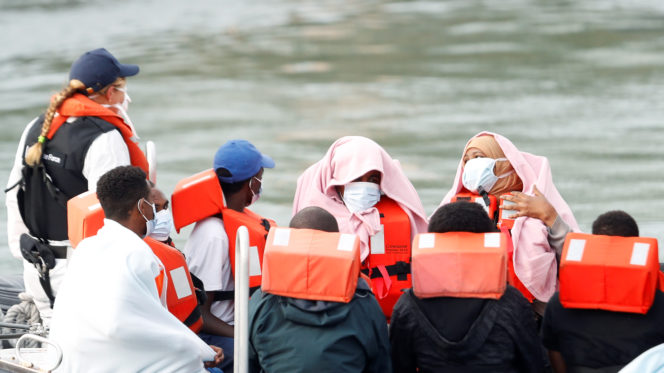The UK Border Regime Extends a Whole Lot Further Than France
Priti Patel wants to shift responsibility for refugees on to the rest of the world.
by Zoe Gardner
24 January 2022

From Priti Patel’s wave machines to the navy pushing back boats across the Channel, when it comes to immigration, the UK’s border with France tends to be the focus of both politicians and the press.
Such attention, however, misses a huge part of the picture. The UK’s brutal immigration policy extends much further than our own borders – from military support at the Polish border to funding detention centres in Africa. Indeed, the government’s violent border regime affects not only the safety of migrants in France, but that of migrants all over the world.
With many other countries similarly keen to abdicate their responsibility on the issue, it is not enough to fight for a more compassionate immigration policy in the UK alone; ensuring that migrants are afforded the rights and safety they deserve must be an internationally coordinated effort.
The UK is trying to pass the buck.
Since Britain left the EU, the government has been seeking to intensify its already restrictive and hostile immigration system. By increasing short-term visa pathways that include no settlement, family reunification, access to public funds or freedom to change employer, the government has slashed many of the rights that are essential for migrants’ wellbeing. Meanwhile, the proposed nationality and borders bill only seeks to exacerbate this by further criminalising and brutalising asylum seekers who are trying to get protection in the UK.
If this wasn’t bad enough, home secretary Priti Patel is also trying to externalise responsibility for refugees on to the EU. In practice, this has meant the home secretary desperately seeking returns deals with the union, which would allow her to send asylum seekers ‘back’ to the countries they transited through. These latest plans completely ignore people’s family ties, and other strong links they have to the UK; grounds which had previously allowed some to safely seek asylum here via the Dublin Convention.
What’s more, with France set to take over the presidency of the European Council, we should be seriously concerned that this kind of behaviour will persist; no matter what deal is eventually negotiated, it will likely be one based around shifting responsibility, rather than protecting people’s right to asylum.
The EU is just as guilty.
The UK’s responsibility-shifting approach is connected to the EU’s management of its own external borders, where migrants are violently expelled and left to die instead of being allowed to enter EU territory and seek asylum.
The EU and its member states have signed off on giving huge amounts of money to Turkey to contain refugees, as well as entering into yet more concerning cooperation agreements with Libyan militias, which see European coastguards return migrants to the country, despite knowing that doing so exposes them to the risk of being tortured, held for ransom, or sold into slavery.
The continuing interconnected nature of the UK and EU’s violent border closures is further highlighted by the fact that British troops are currently being deployed in Poland and Lithuania, where they are supporting efforts to keep out the refugees sent there by the Belarusian dictatorship.
But the UK’s role in enforcing deadly closed borders stretches further still. The UK, for example, remains party to the Rabat and Khartoum Processes – so-called migration management partnerships with countries across Africa, including Somalia, Sudan and the Democratic Republic of Congo. These deals effectively entail European states ‘supporting’ efforts by African state authorities to patrol and seal their borders, detain ‘irregular’ migrants and operate surveillance activities. The human rights implications of collaborating with regimes that are known to severely repress the rights of their own citizens are shocking, yet these migration accords receive worryingly little scrutiny.
Emboldened, no doubt, by the lack of outrage at such violence, the government is now seeking to externalise yet more responsibility for migrant detention to poorer parts of the world. The nationality and borders bill would give the government licence to send asylum seekers away to other countries around the world – a step-up from simply preventing people from reaching the UK in the first place, or from sending them back again where they do.
While recent announcements that Rwanda or Ghana may agree to facilitate the offshore detention of asylum seekers on the UK’s behalf have been rebuffed, it could only be a matter of time until the right leverage is found. The bill also gives the home secretary the ability to withhold visa permission for nationals of countries whose governments refuse to cooperate with her migration externalisation agenda, including if they refuse to receive deportees. The arrogance of these measures is outstripped only by how seriously they threaten human rights – and yet they have been met largely with silence from the public.
We need safer pathways.
Ultimately, none of these vile and draconian measures will ever achieve an end to human mobility – people have, and always will, move around. If anything, migration is only likely to increase, as the impacts of climate change are felt more intensely in the coming decades.
It is therefore vital that the UK stops shirking its responsibility for the migrants that arrive on our shores, and instead starts welcoming those trying to enter the country, including the many people who have been impacted by Britain’s violent colonial past and extractive present.
This means creating safe and regulated travel routes for those forced to flee – implementing measures like asylum visas would be a good step – as well as supporting international efforts that recognise people’s right to stay and right to move. Instead of enforcing brutal borders and propping up rights-abusing regimes, the government should be supporting countries’ climate resilience, as well as championing regional rights-based migration and the benefits it can bring.
The UK and the rest of Europe must open safer migration pathways for people fleeing persecution. More than that though, we must take the lead in ending the western arrogance and violence that brutally represses people’s ability to move freely around the world.
Zoe Gardner is policy and research manager for the European Network on Statelessness.


